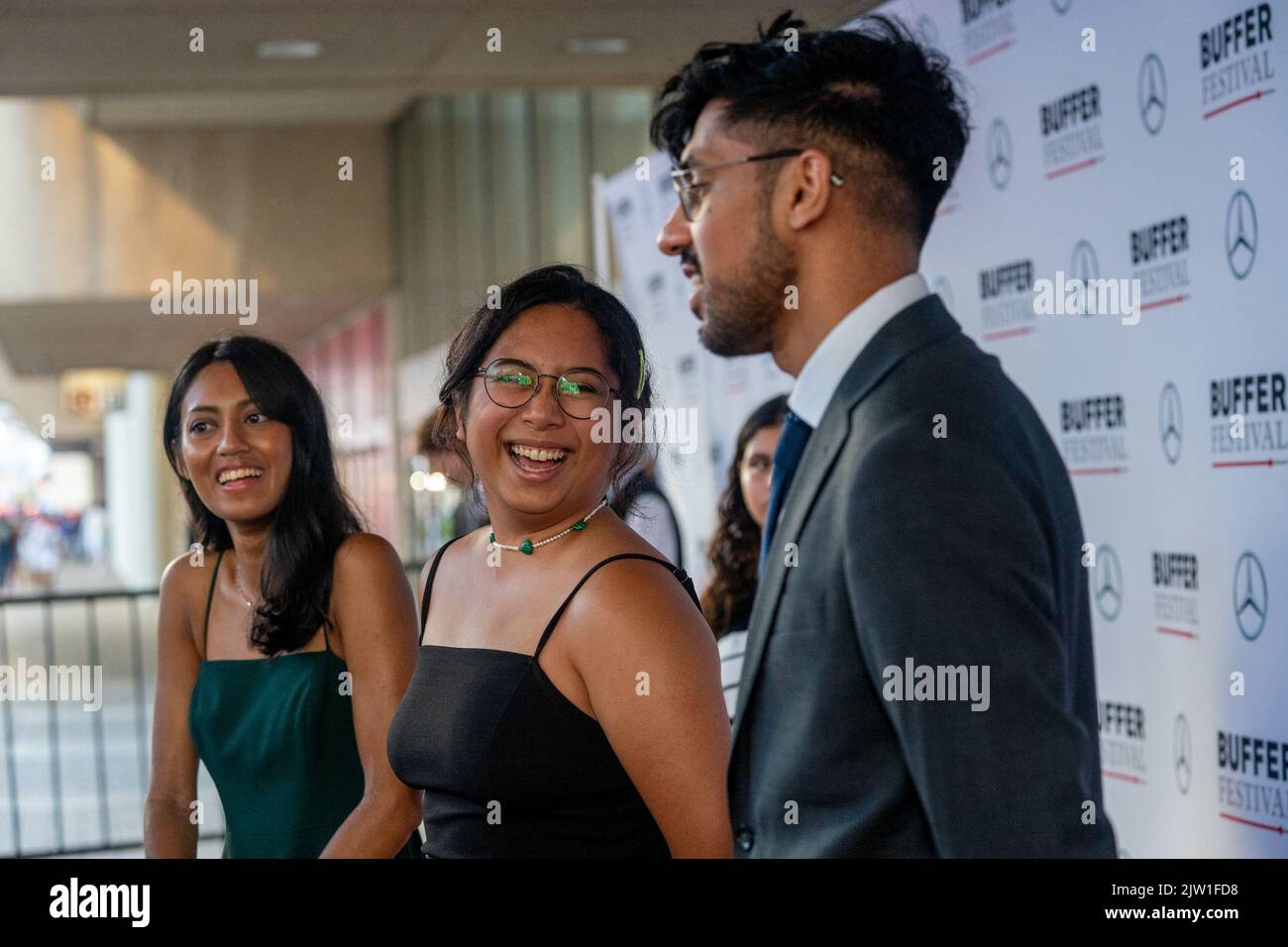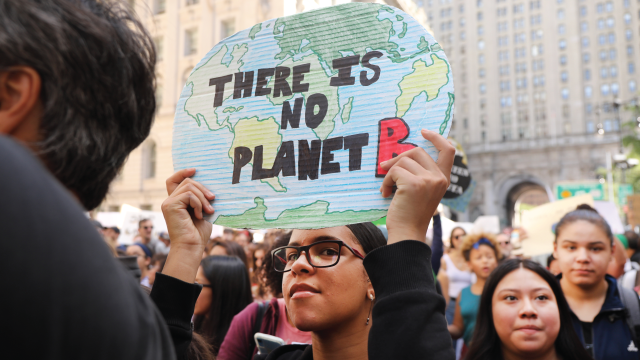Lauren Southern: Navigating the Complex World of Political Commentary
In the intricate tapestry of modern political discourse, few figures have managed to carve out a niche as prominently as Lauren Southern. A controversial and polarizing figure, Southern has both ardent supporters and vocal critics, making her a fascinating subject in the world of political commentary. In this exploration, we aim to unravel the multifaceted persona of Lauren Southern, examining her rise to prominence, the nature of her commentary, and the implications of her work in shaping contemporary political conversations.
The Rise of a Controversial Voice
Lauren Southern, a Canadian conservative political activist, and former media personality, first gained attention in the mid-2010s. Born on June 16, 1995, in Surrey, British Columbia, Southern's foray into public life came relatively early. After a brief stint studying political science at the University of the Fraser Valley, she decided to focus on political activism and media instead. Her journey into the limelight began with her involvement with The Rebel Media, a right-wing Canadian online media platform known for its alternative takes on news and current events.
Southern's rise was buoyed by her engaging, albeit provocative, commentary style, which often challenged mainstream narratives on issues such as immigration, feminism, and identity politics. Her willingness to tackle contentious subjects without the filter of political correctness resonated with a segment of the population feeling alienated by traditional media voices.
The Evolution of Southern’s Commentary
Lauren Southern's career has been marked by a continual evolution in both the nature of her content and the platforms she has utilized. After parting ways with The Rebel Media in 2017, Southern took a more independent approach, using social media and independent platforms to broadcast her messages. This shift allowed her to engage directly with her audience, unencumbered by organizational constraints.
One of the notable aspects of Southern's work is her use of documentary filmmaking to convey her message. Perhaps the most well-known of these is "Farmlands," a documentary exploring the plight of white farmers in South Africa. This project, along with others, highlighted Southern's ability to blend traditional documentary storytelling with contemporary socio-political issues, garnering further attention and controversy.
However, with attention came criticism. Many accused Southern of spreading misinformation and promoting extremist viewpoints. Her work has been scrutinized for allegedly encouraging division and strife, particularly on sensitive topics like immigration policy and racial dynamics. Southern, for her part, has deflected these accusations, asserting her right to free speech and the necessity of addressing uncomfortable truths.
The Impact and Implications of Southern’s Work
The influence of Lauren Southern extends beyond her direct audience. Her work has sparked broader discussions about the role of alternative media in contemporary society, the boundaries of free speech, and the influence of digital platforms in shaping public opinion. Southern's approach has both leveraged and exacerbated the existing polarization within political discourse.
A critical aspect of her impact is the way her content serves as both mirror and catalyst for societal anxieties and fears. By addressing issues often neglected by mainstream outlets, Southern has tapped into a demographic that feels underserved by conventional media narratives. Her success underscores the growing power of digital platforms in amplifying voices that traditional media might overlook.
Yet, this influence is double-edged. As a prominent figure often associated with far-right ideologies, Southern's work raises questions about the responsibility of media personalities in mitigating the spread of misinformation and fostering productive dialogue. The controversy surrounding her documentaries and public appearances highlights the precarious balance between free expression and the potential harm of inciting divisive rhetoric.
Conclusion: Lauren Southern in the Broader Context
Lauren Southern remains a nuanced figure in the global landscape of political commentary. Her ability to galvanize both support and opposition underscores the complexity of modern media dynamics. Southern has undoubtedly left an indelible mark on political discourse, embodying the tension between traditional news outlets and the unfiltered immediacy of digital content. As discussions around free speech and media responsibility continue to evolve, figures like Southern will likely remain central to these debates, challenging the boundaries of acceptable discourse and prompting ongoing reflection on the values underpinning our societies.
In the next sections, we will delve deeper into the controversies surrounding Southern, exploring how her work has influenced public policy conversations and the broader implications for peace and conflict in a digitally connected world. (To be continued...)
Controversies Surrounding Lauren Southern
The trajectory of Lauren Southern’s career is inextricably linked to the controversies that often accompany her work. These controversies have cast her as both a bold truth-seeker and a dangerous provocateur in the eyes of different observers. To understand the broader implications of Southern’s endeavors, it’s important to examine specific incidents and projects that have sparked widespread debate.
One of the most significant controversies arose from Southern’s involvement in campaigns against mass immigration. In 2018, she participated in a mission with the group "Defend Europe," which aimed to intervene in the rescue operations conducted by NGOs in the Mediterranean Sea. The operation, which sought to block migrant boats from landing on European shores, was met with condemnation from many humanitarian organizations and governments. Critics argued that such actions endangered lives and were rooted in xenophobic ideologies. Southern, however, described the mission as a necessary stand against illegal immigration and a defense of European borders.
Another flashpoint in Southern’s career is her portrayal of race relations and identity politics. Her documentary "Farmlands" was criticized by some for allegedly amplifying white supremacist narratives by focusing on the purported genocide of white farmers in South Africa—claims that have been heavily disputed and critiqued by experts for exaggerating the reality. Southern defended her documentary as shedding light on issues ignored by the mainstream media but faced backlash for allegedly providing fuel to racist ideologies.
Additionally, Southern’s return to the spotlight with "Borderless," a documentary investigating illegal immigration and trafficking in Europe, stirred further debate. While some praised her investigative work, others continued to question the ethical foundations of her approach and the potential consequences of her messaging on societal peace.
Public Policy and the Influence of Southern’s Narrative
The impact of Lauren Southern’s work reverberates beyond the domains of online discourse and street activism; it permeates public policy debates and societal perceptions about key global issues. Southern’s persistent focus on topics such as immigration and national identity resonates with conservative and right-wing movements that have gained traction across various regions in recent years.
Her narratives often reflect broader policy sentiments that favor tighter immigration controls and stringent border security measures. As such, Southern has become a figurehead whose rhetoric echoes in political corridors advocating for these policies. This connection between media persona and policy advocacy raises significant questions about the power of influential commentators in shaping policy discussions.
Furthermore, Southern’s work stimulates dialogue around the human aspect of these policies. Whether through documentaries shedding light on border crises or highlighting the anxieties of certain demographic groups, Southern’s approach catalyzes discourse about the beneficiaries and victims of policy decisions. This layer adds complexity to her role as a commentator, further fueling the ongoing debate over the balance between security and humanitarian considerations in formulating immigration policy.
The Digital Age and the Amplification of Content
Lauren Southern's influence is in many ways a testament to the capabilities and complexities of the digital age. The Internet, with its networks and platforms, has provided unprecedented opportunities for individuals like Southern to reach global audiences without the gatekeeping of traditional media. Through YouTube, Twitter, and other social media outlets, Southern has disseminated her content quickly and widely, illustrating the power of digital platforms in shaping modern political discourse.
This ease of access and amplification, however, comes with ethical concerns. The rapid dissemination of information—both accurate and misleading—challenges consumers to critically evaluate content. Southern’s content often prompts viewers to question mainstream narratives, but the question remains: are these narratives being responsibly challenged, or is the landscape being muddied by sensationalist misinformation? This duality underscores the need for media literacy and accountability in the digital era.
Moreover, the digital environment that elevates voices like Southern's also fragments audiences along ideological lines. Algorithms designed to maximize engagement cluster users with similar viewpoints, potentially creating echo chambers that reinforce existing beliefs. Southern’s work, therefore, embodies both the potential for broad societal impact and the risk of exacerbating divisions through selective exposure.
Concluding Thoughts on Southern's Complex Legacy
As the discourse shaped by Lauren Southern continues to evolve, her impact remains multifaceted and far-reaching. She embodies the essence of our current media environment—where the convergence of alternative narratives and digital platforms can empower voices that challenge the status quo. Whether viewed as a courageous whistleblower confronting uncomfortable truths or a controversial figure perpetuating divisive rhetoric, Southern’s presence in the sphere of political commentary cannot be overlooked.
Her work prompts ongoing reflection on the power and responsibility of media figures in an interconnected world. As we continue to explore her influence, future considerations will focus on the long-term effects of her narratives on social cohesion, policy development, and the public’s relationship with media information.
The next part will explore the potential prospects for Southern and similar figures in shaping the new world media order, as well as the strategies needed to navigate the challenges posed by an increasingly polarized global discourse. (To be continued...)
The Future of Political Commentary: Southern’s Role
As the digital landscape continues to evolve, the role of commentators like Lauren Southern is poised to become increasingly complex. The rise of alternative media voices in recent years indicates a shift in how audiences consume information and form opinions. This shift presents both opportunities and challenges for Southern and similar figures seeking to engage with ever-expanding and diverse audiences.
One avenue through which Southern could expand her influence is by bridging the gaps between polarized groups. While her career thus far has largely been characterized by reinforcing specific ideological narratives, there is potential for Southern to foster dialogue across divides by acknowledging nuanced perspectives and seeking common ground. By adapting her approach to account for the multiplicity of views within contentious issues, Southern could redefine her impact, shifting from a predominantly polarizing figure to a facilitator of broader conversations.
Moreover, the growing importance of media literacy offers a significant area for Southern to influence. In an era where the boundaries between fact and opinion are frequently blurred, commentators have a unique responsibility to encourage critical engagement with content. By championing the value of media literacy, Southern could encourage her audience to question sources, examine evidence, and engage thoughtfully with diverse perspectives, ultimately fostering a more informed and discerning public.
Ethical Considerations and the Responsibility of Media Figures
The potential trajectory of Lauren Southern’s career also underscores the ethical considerations inherent in contemporary media landscapes. As figures like Southern grow their platforms and reach, the responsibility to mitigate the spread of false or harmful narratives becomes more pressing. For Southern, this translates into a need to balance provocation with accountability, ensuring that her content does not merely incite but rather illuminates complex issues.
In addressing these ethical considerations, Southern and her contemporaries have the opportunity to redefine the role of media in society. This involves recognizing the power dynamics at play and the potential consequences of their narratives on the social fabric. By prioritizing responsible storytelling and transparent sources, Southern can cultivate trust among her audience and contribute to a healthier media ecosystem.
Furthermore, Southern’s ongoing engagement with contentious topics necessitates continuous reflection on core journalistic principles. This includes a commitment to fairness, accuracy, and integrity, as well as an openness to diverse viewpoints. By holding herself and her work to these standards, Southern can serve as a model for other commentators navigating similar paths.
The Global Media Environment and Collaborative Opportunities
Lauren Southern’s career also highlights the potential for global collaboration in addressing the pressing issues of our time. As borders become less significant in defining discourse and information flows, Southern and others have the chance to engage with international audiences and collaborate with diverse groups to tackle shared challenges.
This global perspective places figures like Southern at the center of evolving media frameworks that transcend national boundaries. By working alongside thinkers, activists, and commentators from various backgrounds, Southern can contribute to fostering a more interconnected and empathetic global community. Such collaborations might involve joint projects, panel discussions, or content exchanges that prioritize inclusive narratives and collective problem-solving.
Additionally, Southern’s engagement on a global stage offers an avenue to explore underrepresented stories and voices—thereby broadening the scope of her commentary and influence. By championing marginalized groups and engaging with unfamiliar perspectives, Southern can enrich her content with depth and diversity, further solidifying her relevance in an ever-shifting media landscape.
The Legacy of Lauren Southern and the Path Forward
As Lauren Southern continues to navigate the realm of political commentary, her legacy remains an open-ended narrative filled with both challenges and opportunities. Her work, emblematic of the complexity inherent in modern media discourse, will likely continue to evolve as she adapts to new landscapes and audiences.
Southern’s journey serves as a reference point for the broader media ecosystem, raising essential questions about the nature of influence, accountability, and impact. Her ability to drive public conversations highlights the power of individual voices in shaping discourse, while also underscoring the ongoing need for media figures to act responsibly and ethically.
Looking ahead, Southern’s potential to redefine her role offers a template for others seeking to balance passion with prudence, conviction with caution. Her continued engagement with digital platforms and expanding audiences presents an opportunity to contribute positively to the evolution of political commentary, by aligning her work with principles that prioritize truth, inclusivity, and understanding.
In conclusion, Lauren Southern embodies the multifaceted nature of contemporary media figures, where influence can serve both as a means to divide or unite. As the media environment continues to transform, Southern, along with her peers, holds the potential to either inflame existing divisions or foster a more informed, connected, and empathetic society. The path she chooses will undoubtedly shape her enduring legacy and influence the future of political commentary.





















Comments